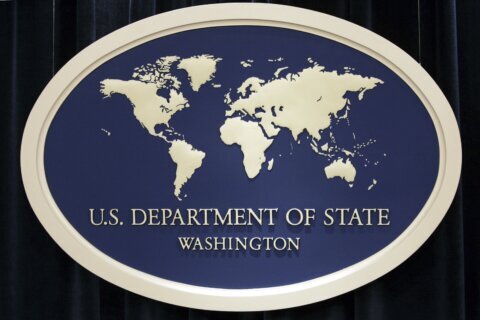Two fees you certainly don’t want to see on your bank statement are overdraft fees and non-sufficient funds, or NSF, fees. While overdraft fees and NSF fees aren’t the same, both penalize you for not having enough money in your account to cover a payment. And each of these fees can cost $30 or more.
[Read: Best Online Banks.]
Overdraft Fees
What Are Overdraft Fees?
Some financial institutions impose overdraft fees when they cover a payment, such as a debit card transaction or a check, from an account even though the account lacks enough money for the payment.
In a given year, about 23 million U.S. households pay overdraft fees, according to the Consumer Financial Protection Bureau.
How Much Do Overdraft Fees Cost?
Some financial institutions charge overdraft fees of $30 or more, according to the Biden administration. The CFPB has proposed dropping these fees to as little as $3.
How to Avoid Overdraft Fees
To avoid overdraft fees:
— Set up direct deposit. If you receive paychecks or government benefit checks, sign up for direct deposit instead of receiving paper checks. Doing so gives you quicker access to money and may help prevent potential overdrafts.
— Monitor your account. Regularly check your balance and transactions to make sure you’ve got enough cash on hand to cover bills and other expenses.
— Maintain a stash of cash. Keep extra money in your checking account or link your checking account to your savings account in case your checking balance dips below a comfortable level.
— Connect your account to a credit card or line of credit. This could be a more expensive way to avoid an overdraft fee, as you’ll need to repay the amount of money borrowed from the credit card or line of credit plus any interest you’re charged. Therefore, turn to this option as a last resort.
— Sign up for alerts. Most financial institutions enable you to receive automatic emails or text messages when your balance falls below a certain amount. This may provide enough notice to deposit money into your account before an overdraft occurs.
— Don’t write checks. Rather than writing checks, consider using your debit card or cash. It’s easy to forget that you’ve written a check if you’re not diligent about tracking it.
— Choose a financial institution with no overdraft fees. When you’re shopping for a place to open an account, find out whether the bank or credit union you’re considering charges overdraft fees.
— Ask to have the fee waived. If you don’t regularly overdraw your account balance, your bank or credit union may be willing to waive the fee on an occasional overdraft, if you ask them to.
[See: Best High-Yield Savings Accounts]
NSF Fees
What Are NSF Fees?
Some financial institutions charge NSF fees when they reject a payment, such as a debit card transaction or a check, because the account lacks enough money to cover the transaction.
How Much Do NSF Fees Cost?
The CFPB says most banks and credit unions have eliminated NSF fees. In fact, the 25 largest banks as measured by total assets no longer charge these fees. This list includes Chase, Bank of America, Citibank, Wells Fargo, U.S. Bank, Truist, PNC, Capital One, TD Bank and BMO.
Among financial institutions that do charge them, NSF fees generally range from $10 to $50. In 2022, the CFPB reported the average NSF fee was $34.
The CFPB has proposed banning NSF fees on debit card transactions that get denied in real time.
How to Avoid NSF Fees
To avoid NSF fees:
— Use direct deposit. Direct deposit offers faster access to paychecks and government benefit checks than paper checks do.
— Watch your account. Keep an eye on your balance and transactions to ensure you’ve got a sufficient amount of money to cover payments coming out of your account.
— Set aside extra money. Maintaining a cash cushion in your checking account or a linked savings account can help avoid an NSF situation.
— Link your account to a credit card or line of credit. If you’ve got a credit card or line of credit set up as a backup, you can avoid an NSF fee if your balance is less than the transaction you’re trying to complete. But because of the potential interest you’ll pay, this shouldn’t be your primary method for avoiding an NSF fee.
— Enable balance notifications. Some financial institutions let you set up automatic alerts by email or text message when your account balance falls below a certain level.
— Ditch the checks. Rather than writing checks, stick to paying with a debit card or cash. This way, you won’t be surprised by a forgotten check that your financial institution declines to cover.
— Pick a bank with no NSF fees. If you’re opening a new account, look for a financial institution that doesn’t charge NSF fees.
More from U.S. News
What Is a Good Interest Rate on a Savings Account?
How to Secure Your Bank Account From Fraudsters
How Overdraft Fees and NSF Fees Compare originally appeared on usnews.com







